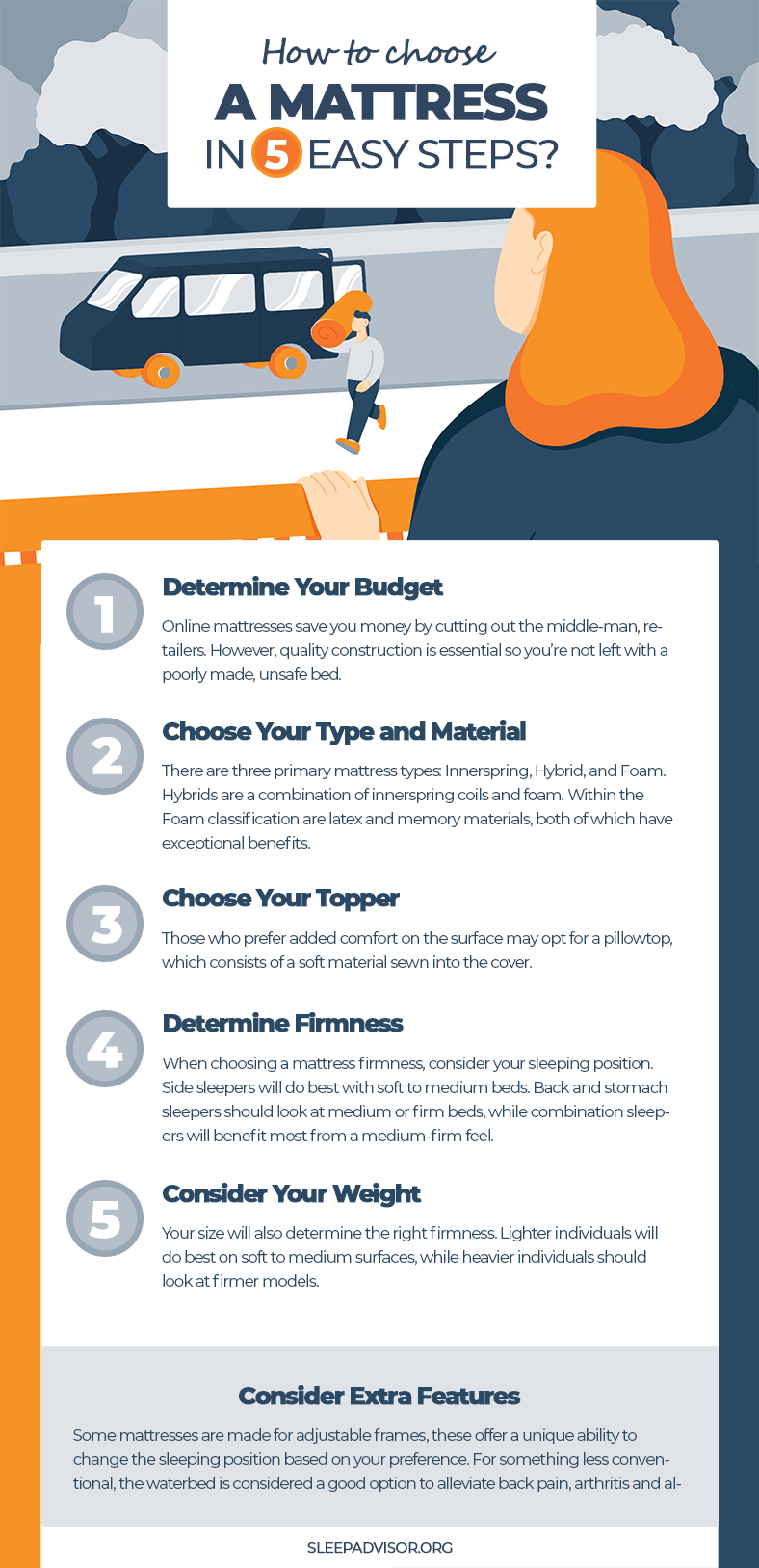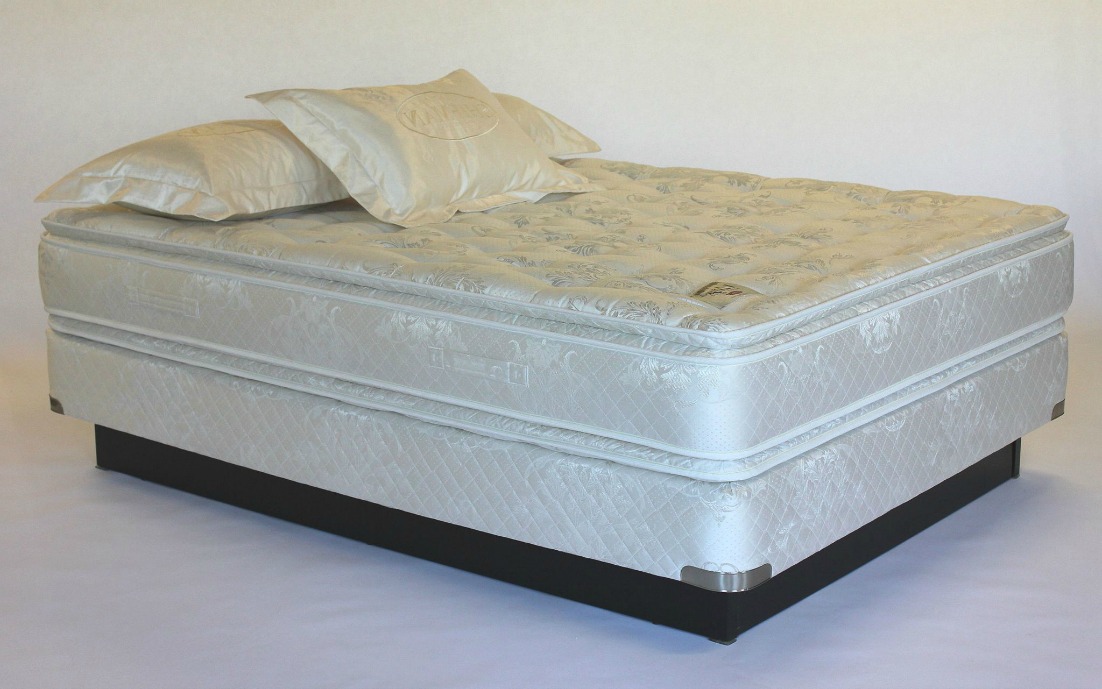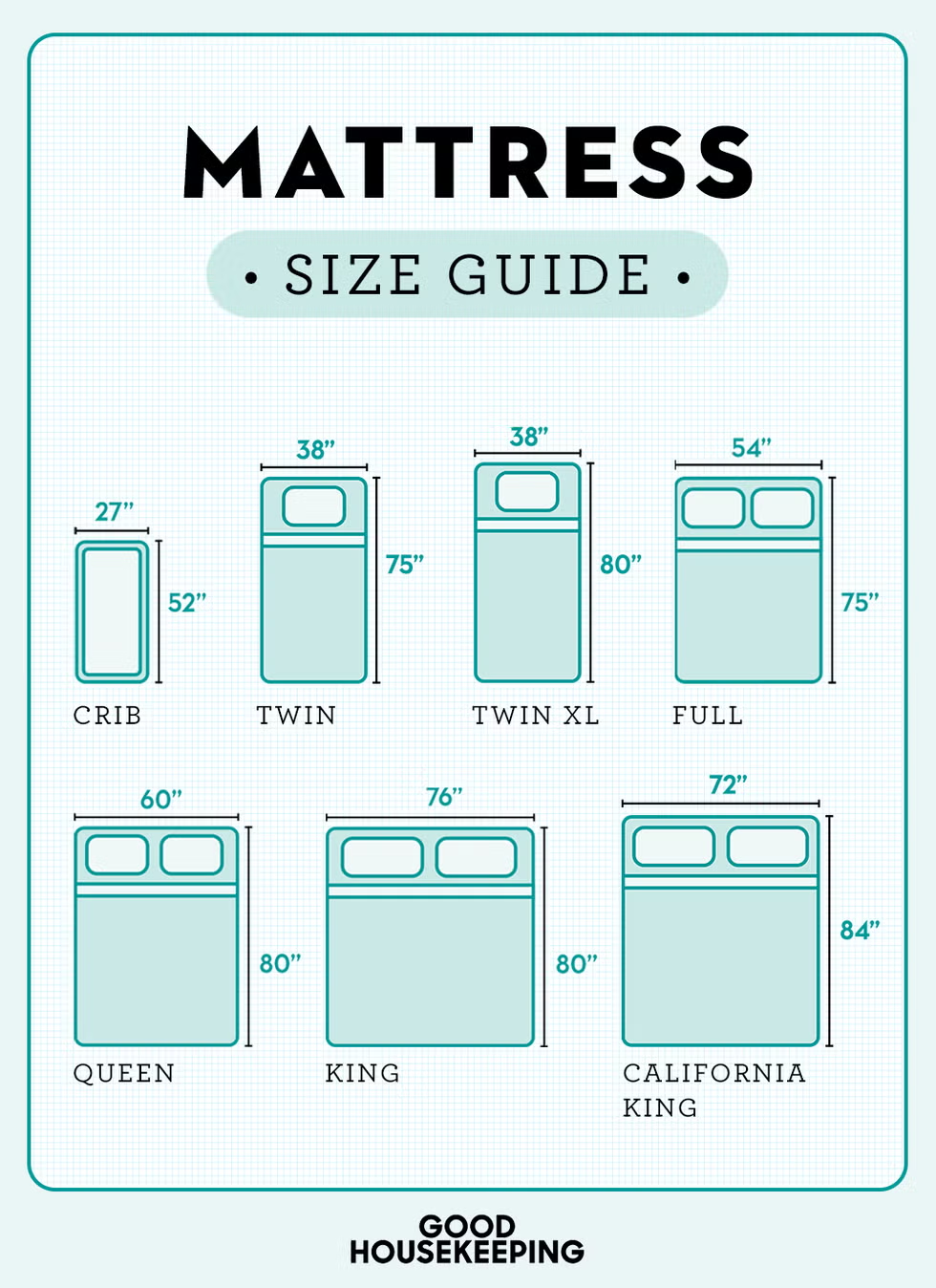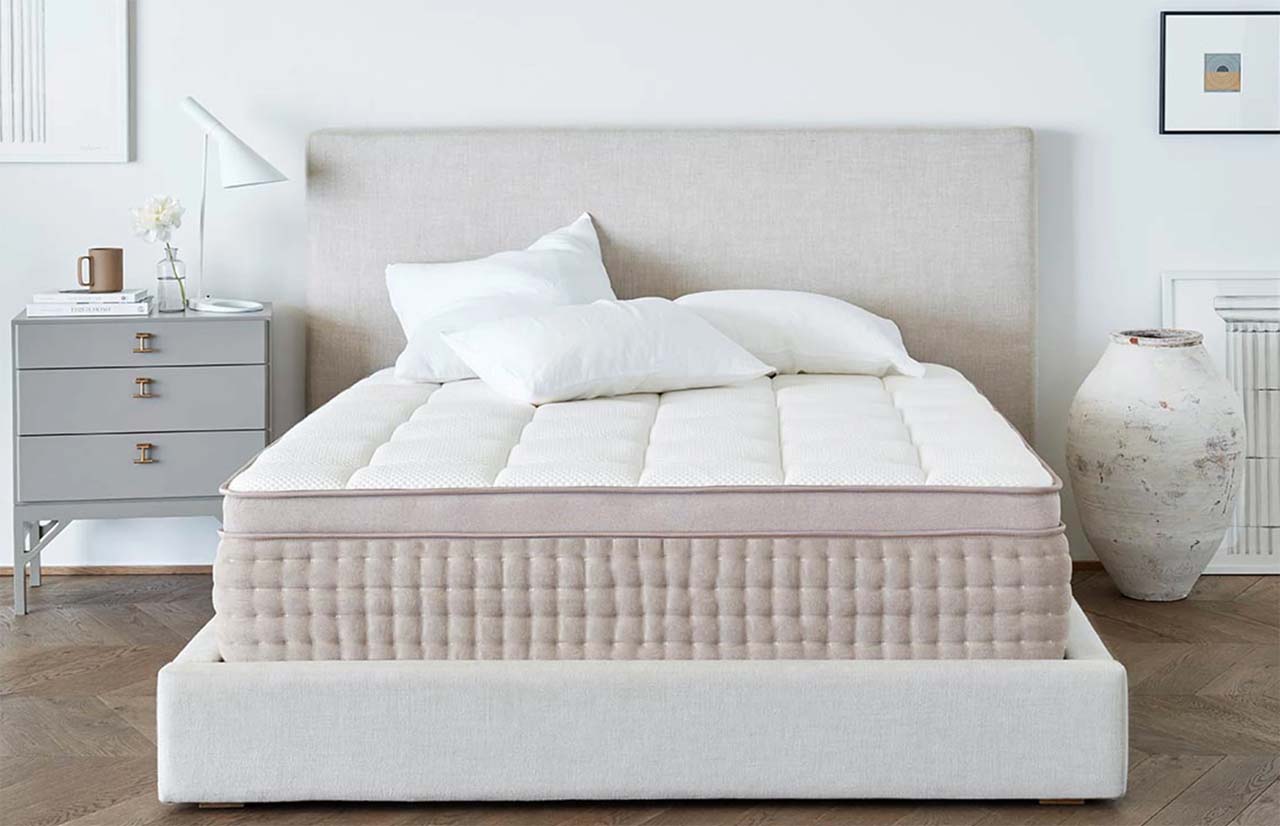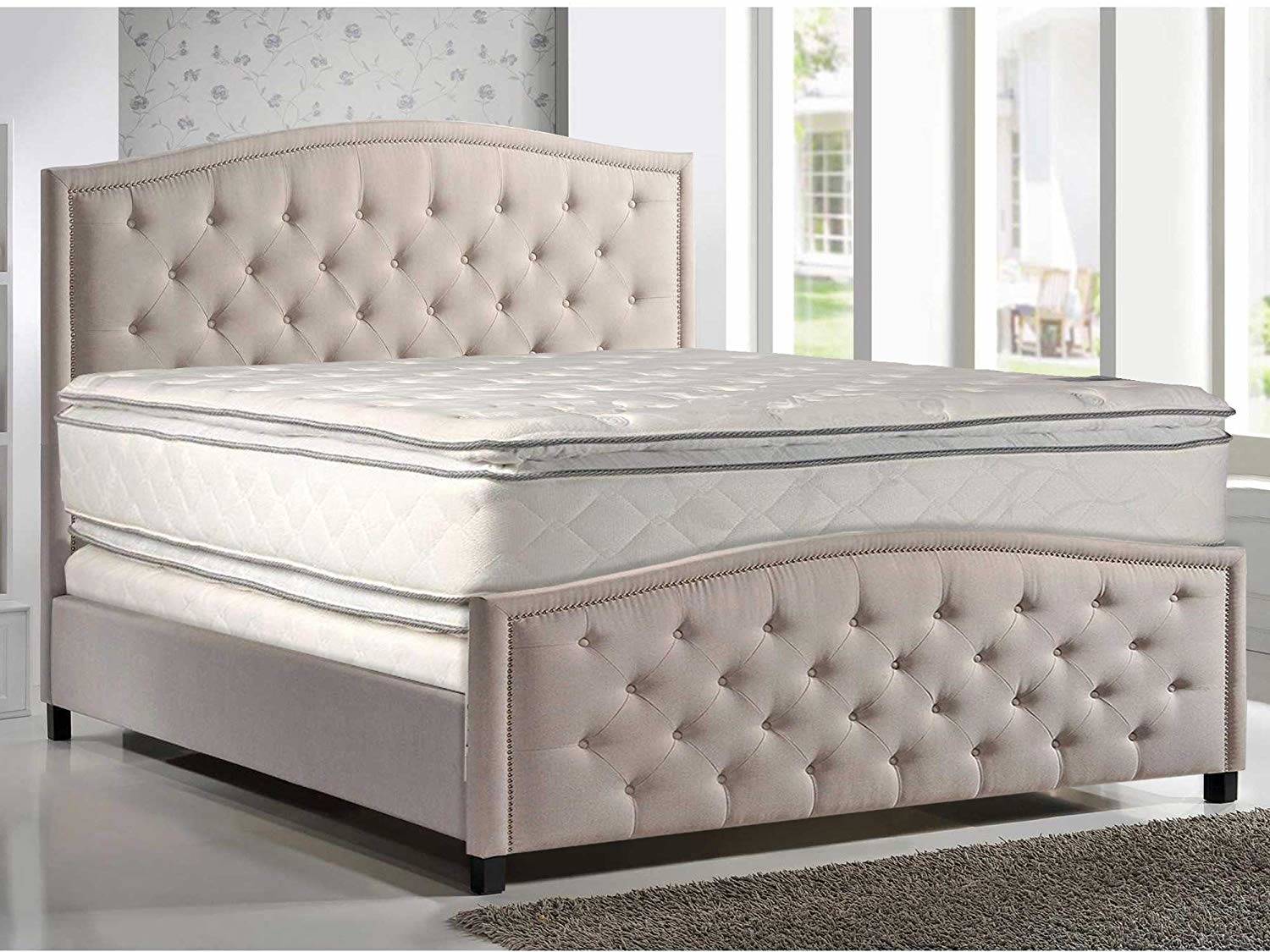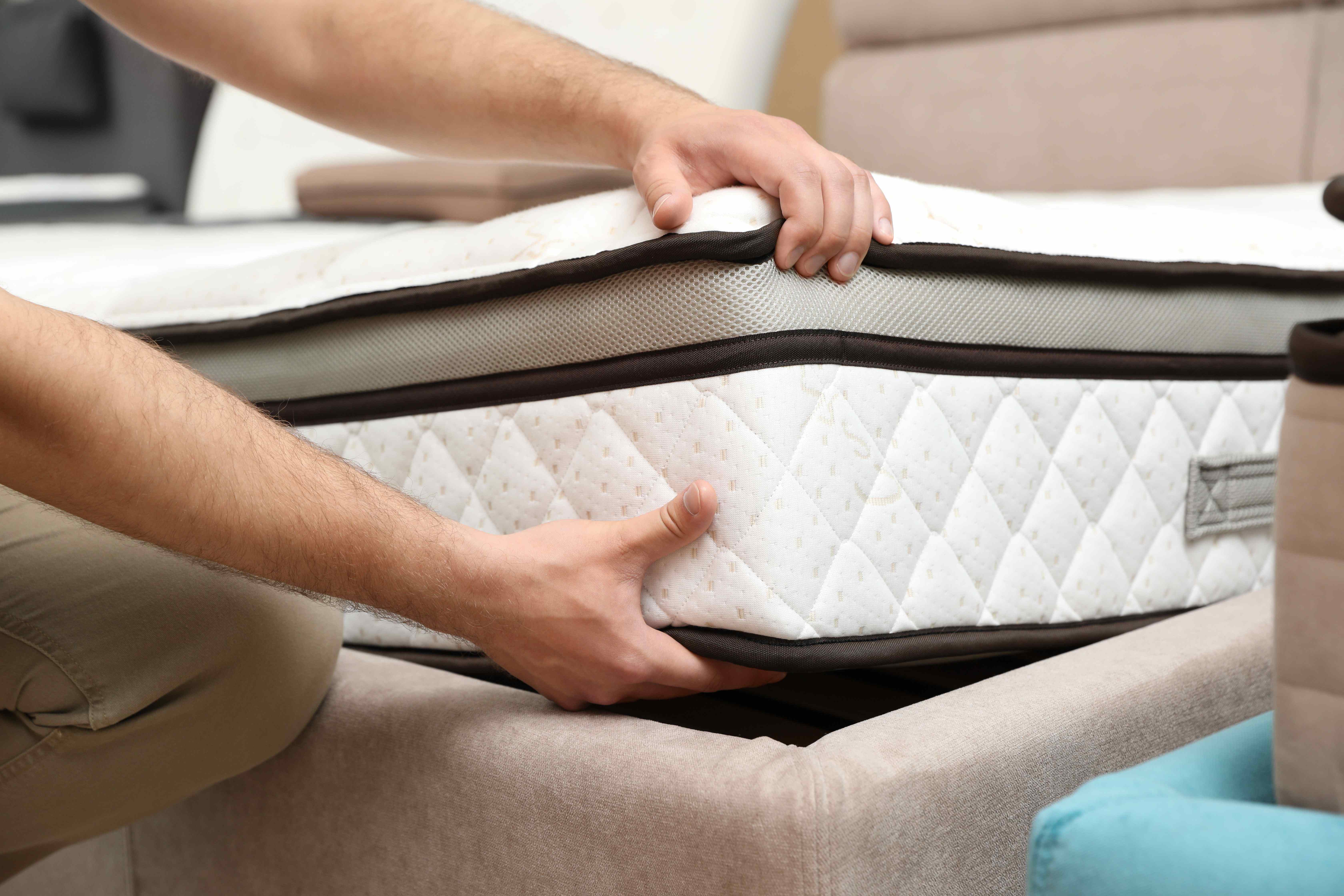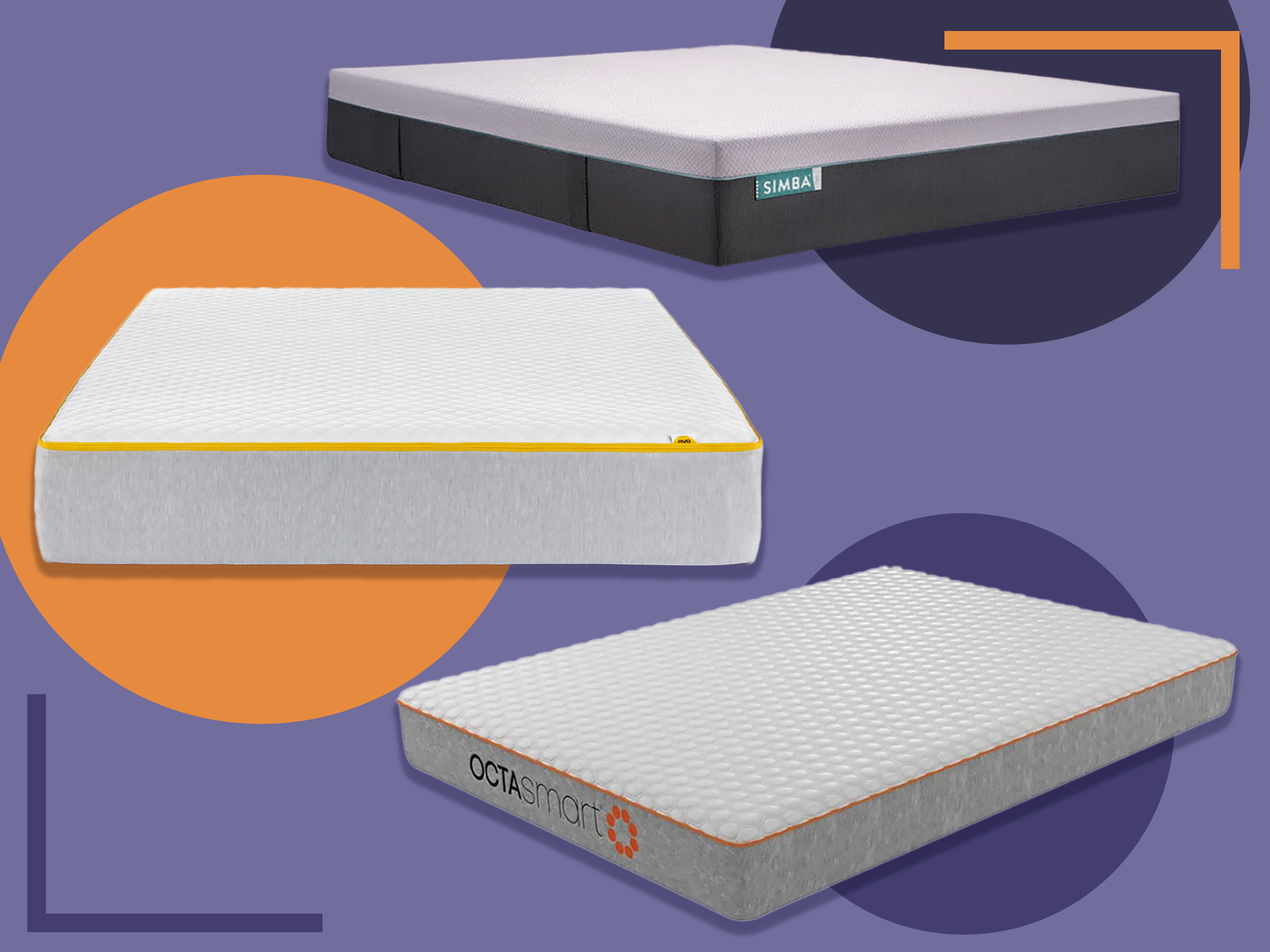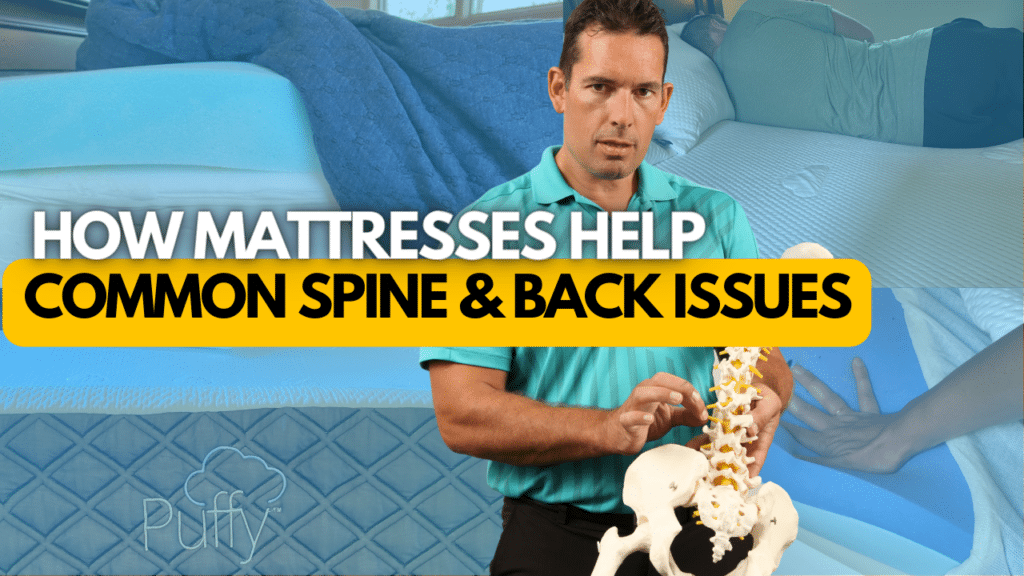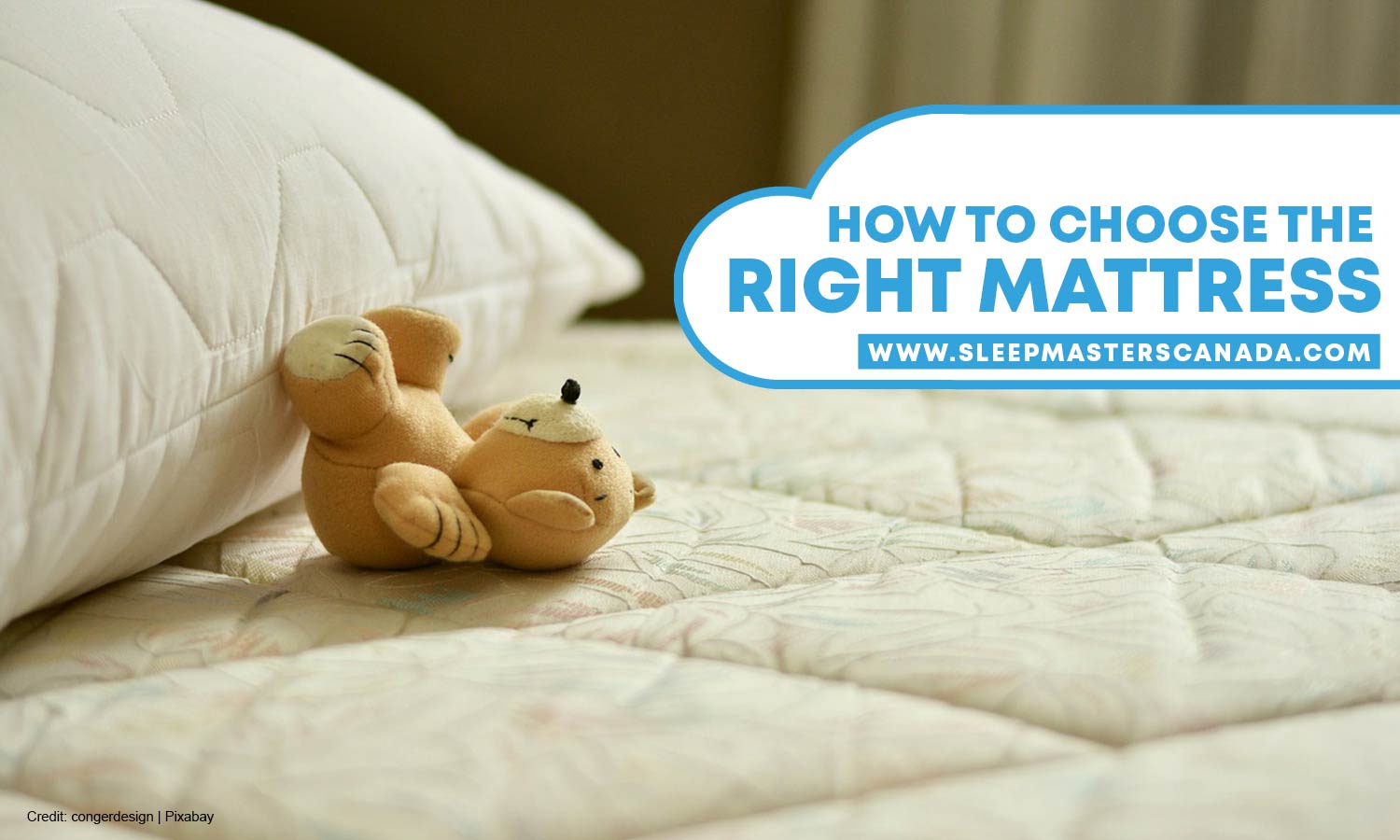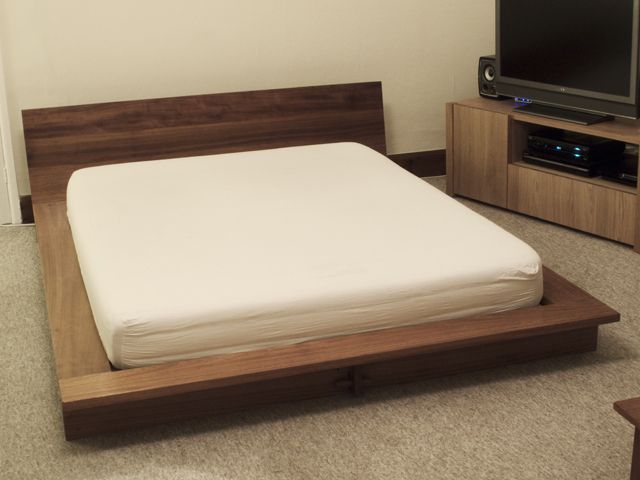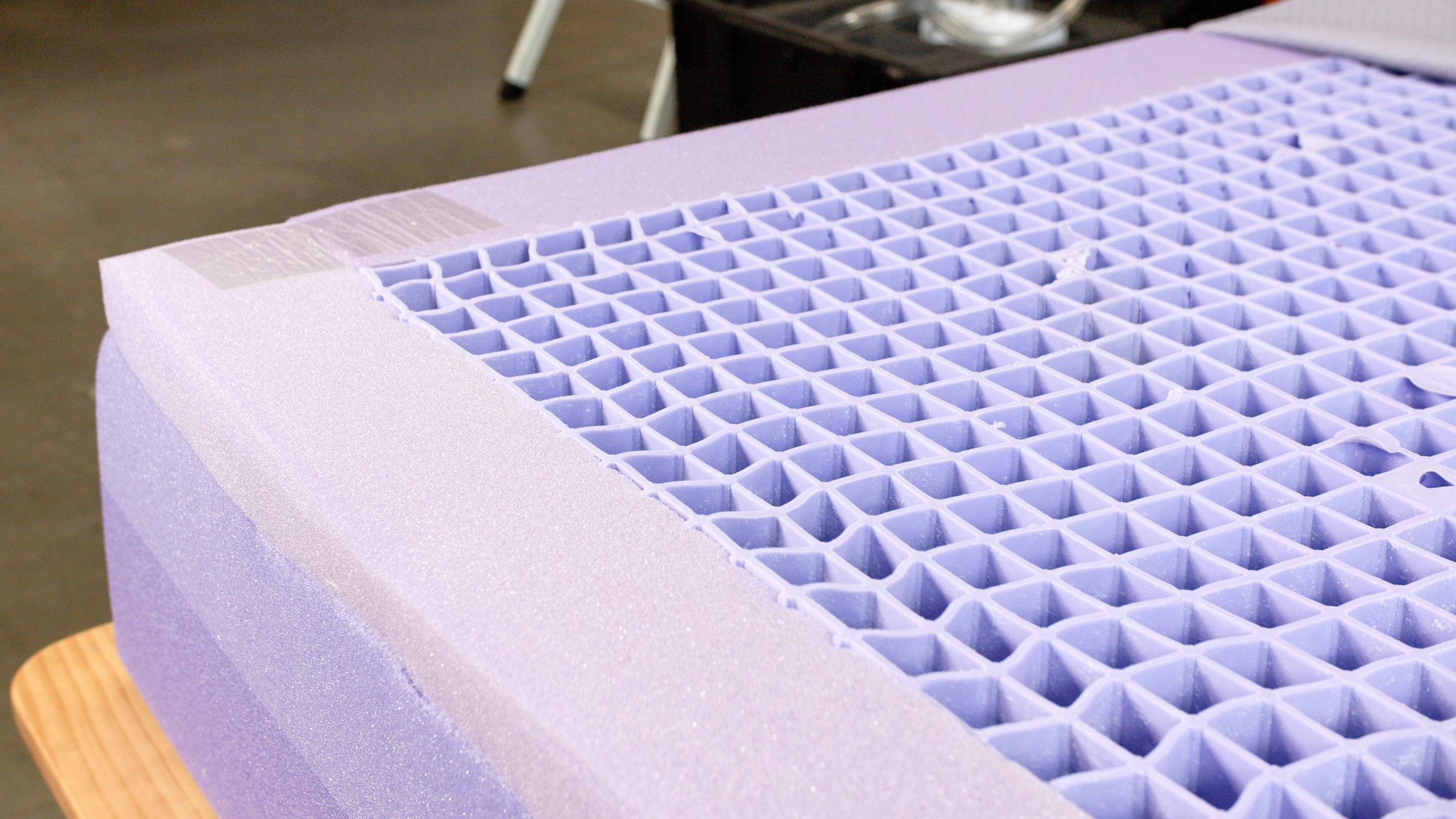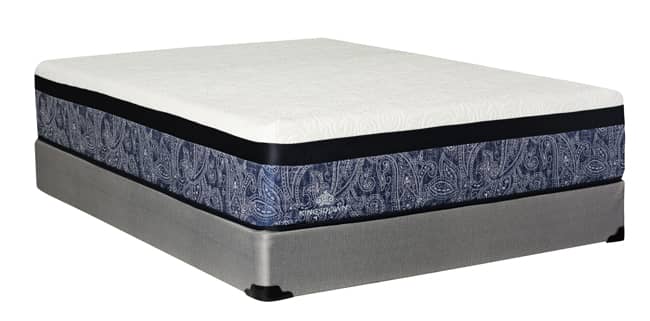Choosing the perfect mattress can be a daunting task, with so many options and factors to consider. But fear not, we've got you covered with our top 10 tips for finding the right mattress for your needs. Tip 1: Determine your budget before you start shopping. Mattresses can range from a few hundred dollars to thousands, so knowing your budget will help narrow down your options. Tip 2: Consider your sleeping position. Whether you're a side, back, or stomach sleeper, different mattresses offer varying levels of support and comfort. Make sure to test out different options to see what works best for you. Tip 3: Think about your body type. Heavier individuals may need a firmer mattress for proper support, while lighter individuals may prefer a softer one. Tip 4: Pay attention to the materials used in the mattress. Memory foam, latex, and innerspring are all popular options, each offering their own benefits and drawbacks. Tip 5: Consider your partner's needs. If you share a bed, make sure to find a mattress that caters to both of your needs, such as motion isolation for restless sleepers. Tip 6: Test out the mattress in person if possible. While online shopping may be convenient, it's always best to try out the mattress in person to get a true feel for its comfort and support. Tip 7: Look for a warranty. A good mattress should come with a warranty of at least 10 years, ensuring that you'll be covered if any issues arise. Tip 8: Read customer reviews. While personal preference plays a big role in mattress satisfaction, reading reviews from other customers can give you a better idea of the mattress's quality and comfort. Tip 9: Don't be afraid to negotiate. Many mattress retailers have room for negotiation, so don't hesitate to ask for a better price or additional perks like free delivery or a mattress protector. Tip 10: Trust your instincts. At the end of the day, the most important factor in choosing the perfect mattress is your own comfort and satisfaction. Don't feel pressured to make a purchase if you're not 100% sure.1. "10 Tips for Choosing the Perfect Mattress"
When it comes to finding the best mattress, it's important to do your research and read reviews from both experts and customers. Here's our buying guide to help you make an informed decision. Step 1: Determine your needs. Are you looking for a mattress with pressure relief for back pain, or one with cooling properties for hot sleepers? Knowing what you need will help narrow down your options. Step 2: Research different mattress types. Memory foam, latex, innerspring, and hybrid mattresses all offer different levels of comfort and support. Understanding the differences can help you make the best choice for your needs. Step 3: Check for certifications. Look for mattresses that are CertiPUR-US certified, meaning they are made with safe and environmentally-friendly materials. Step 4: Read customer reviews. While everyone's experience may be different, reading reviews can give you a better idea of the mattress's quality and comfort level. Step 5: Compare prices and warranties. Don't be swayed by a lower price if it means sacrificing quality. Make sure to also check for warranty coverage and length. Step 6: Test out the mattress if possible. If you can, visit a store to try out the mattress in person. If not, make sure the retailer has a good return policy in case the mattress doesn't meet your expectations. Step 7: Don't be afraid to ask questions. If you're unsure about something, reach out to the retailer or manufacturer for clarification. A reputable company will be happy to assist you.2. "The Best Mattress Reviews and Buying Guide"
Shopping for a mattress can be overwhelming, but with these expert tips, you'll be well on your way to finding the perfect one for your needs. Tip 1: Don't compromise on quality. A good night's sleep is essential for your health and well-being, so investing in a high-quality mattress is worth it in the long run. Tip 2: Consider the size of your room. While a king-sized bed may sound appealing, make sure it will actually fit in your bedroom without feeling too cramped. Tip 3: Look for a trial period. Many mattress companies offer a trial period, allowing you to test out the mattress for a certain amount of time before committing to the purchase. Tip 4: Don't be swayed by fancy features. While features like adjustable bases and built-in massage may sound enticing, they may not actually improve the quality of your sleep. Tip 5: Check for return policies and warranties. Make sure the retailer has a good return policy and that the mattress comes with a warranty to protect your investment. Tip 6: Ask about delivery and setup options. Some retailers offer free delivery and setup, which can save you time and hassle. Tip 7: Don't be afraid to negotiate. If you find a mattress you love but it's out of your budget, don't be afraid to negotiate for a better price or additional perks. Tip 8: Don't overlook the foundation. A good mattress needs a good foundation for proper support, so make sure to invest in a quality bed frame or box spring. Tip 9: Trust your own comfort level. While recommendations from friends and family can be helpful, ultimately, your own comfort should be the deciding factor in choosing a mattress. Tip 10: Don't rush your decision. Take your time and do your research before making a purchase. A good mattress can last for many years, so it's important to choose the right one.3. "Expert Tips for Mattress Shopping"
With so many options on the market, finding the right mattress for your specific needs can be a challenge. Here's how to narrow down your options and find the perfect fit. Step 1: Determine your preferred sleeping position. Side sleepers may need a softer mattress for pressure relief, while back and stomach sleepers may prefer a firmer one for proper support. Step 2: Consider any health concerns. If you suffer from back pain, look for a mattress with good support and pressure relief. If you have allergies, opt for a hypoallergenic option. Step 3: Think about your partner's needs. If you share a bed, make sure to find a mattress that caters to both of your preferences, such as motion isolation for restless sleepers. Step 4: Test out different mattress types. Memory foam, latex, innerspring, and hybrid mattresses all offer different levels of support and comfort, so make sure to try out different options to see what works best for you. Step 5: Consider your budget. While a higher price doesn't always guarantee better quality, investing in a good mattress is important for your sleep and overall health. Step 6: Pay attention to the materials used. Memory foam and latex are known for their pressure relief, while innerspring mattresses offer more bounce and support. Step 7: Look for features that cater to your needs. If you tend to sleep hot, look for a mattress with cooling properties. If you have back pain, consider a mattress with lumbar support. Step 8: Read customer reviews. While personal preference plays a big role in mattress satisfaction, reading reviews can give you a better idea of the mattress's quality and comfort level. Step 9: Take advantage of trial periods. Many mattress companies offer a trial period, allowing you to test out the mattress for a certain amount of time before committing to the purchase. Step 10: Trust your own comfort level. At the end of the day, the most important factor in choosing the right mattress is your own comfort and satisfaction. Don't settle for a mattress that doesn't meet your needs.4. "How to Find the Right Mattress for You"
Shopping for a mattress can be overwhelming, and it's easy to make mistakes that can end up costing you in the long run. Here are the top 10 mistakes to avoid when mattress shopping. Mistake 1: Not doing your research. Without proper research, you may end up with a mattress that doesn't meet your needs or falls apart quickly. Mistake 2: Not considering your partner's needs. If you share a bed, make sure to find a mattress that caters to both of your preferences to ensure a good night's sleep for both of you. Mistake 3: Focusing solely on price. While budget is important, don't sacrifice quality for a lower price. A good mattress is an investment in your sleep and overall health. Mistake 4: Not testing out the mattress in person. While online shopping may be convenient, it's always best to try out the mattress in person to get a true feel for its comfort and support. Mistake 5: Not considering your body type. Heavier individuals may need a firmer mattress for proper support, while lighter individuals may prefer a softer one. Mistake 6: Not checking for certifications. Look for mattresses that are CertiPUR-US certified, meaning they are made with safe and environmentally-friendly materials. Mistake 7: Not reading customer reviews. While personal preference plays a big role in mattress satisfaction, reading reviews from other customers can give you a better idea of the mattress's quality and comfort. Mistake 8: Not asking questions. If you're unsure about something, reach out to the retailer or manufacturer for clarification. A reputable company will be happy to assist you. Mistake 9: Not taking advantage of trial periods. Many mattress companies offer a trial period, allowing you to test out the mattress for a certain amount of time before committing to the purchase. Mistake 10: Not trusting your instincts. At the end of the day, the most important factor in choosing the perfect mattress is your own comfort and satisfaction. Don't feel pressured to make a purchase if you're not 100% sure.5. "Top 10 Mattress Shopping Mistakes to Avoid"
Buying a mattress is a big decision, and it's important to know what to look for and what to avoid. Here's our guide to help you make a smart and informed purchase. What to look for: 1. Quality materials: Look for mattresses made with high-quality materials that are CertiPUR-US certified for safety and environmental friendliness. 2. Good support and comfort: Make sure the mattress offers both support and comfort, catering to your specific needs and preferences. 3. Suitable for your sleeping position: Different mattresses offer varying levels of support and comfort for side, back, and stomach sleepers. Make sure to test out different options to see what works best for you. 4. Adequate warranty: A good mattress should come with a warranty of at least 10 years, protecting your investment in case any issues arise. 5. Positive customer reviews: While everyone's experience may be different, reading reviews from other customers can give you a better idea of the mattress's quality and comfort level. What to avoid: 1. Low-quality materials: Avoid mattresses made with low-quality materials that may not offer the support and comfort you need. 2. Too soft or too firm: A mattress that is either too soft or too firm may cause discomfort and disrupt your sleep. Find a balance that works for you. 3. Lack of warranty: A mattress without a warranty may not last as long or offer the necessary support and comfort. 4. Negative customer reviews: If a mattress has consistently negative reviews, it may be a red flag to avoid that particular brand or model. 5. Not testing out the mattress: It's important to try out the mattress in person if possible, as it may feel different than what you expected based on online descriptions or reviews.6. "Mattress Buying Guide: What to Look for and What to Avoid"
7. "Customer Reviews: The Key to Finding the Perfect Mattress"
Tips for Finding the Perfect Mattress for Your Home
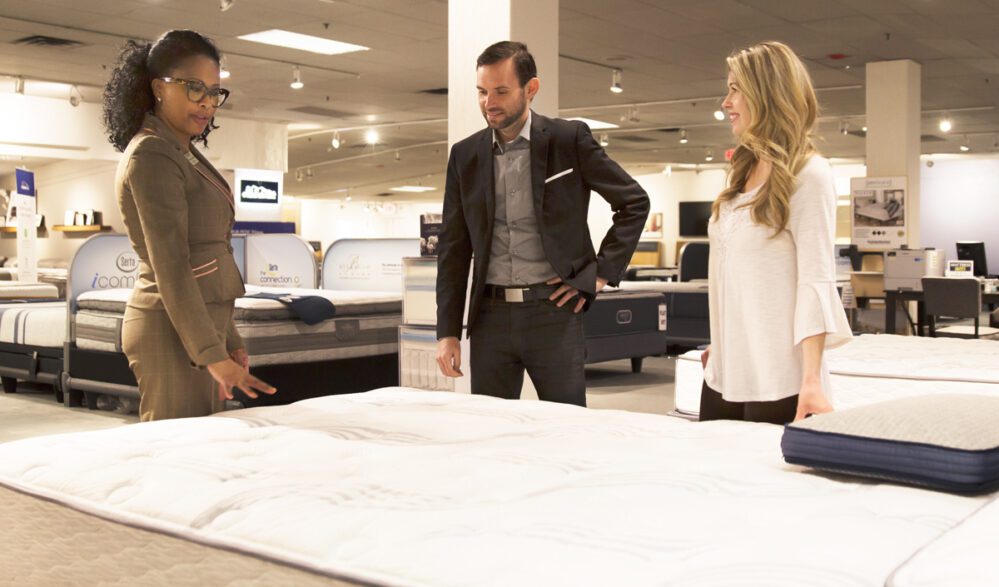
Don't be afraid to test out different types of mattresses
 When it comes to finding the perfect mattress for your home, it's important to not settle for the first one you come across.
Do your research
and try out different types of mattresses to see which one suits your needs and preferences the best. Some people may prefer a firmer mattress, while others may prefer a softer one.
Don't be afraid to lay down on the mattress and test it out for at least 10 minutes
to get a better feel for its comfort level.
When it comes to finding the perfect mattress for your home, it's important to not settle for the first one you come across.
Do your research
and try out different types of mattresses to see which one suits your needs and preferences the best. Some people may prefer a firmer mattress, while others may prefer a softer one.
Don't be afraid to lay down on the mattress and test it out for at least 10 minutes
to get a better feel for its comfort level.
Consider your sleeping position
 Your sleeping position plays a big role in determining the type of mattress that will provide you with the most comfort and support.
If you're a side sleeper
, a softer mattress with good pressure relief is recommended to keep your spine aligned.
For back sleepers
, a medium-firm mattress is ideal for providing support to your lower back.
Stomach sleepers
should look for a firmer mattress to keep their spine in a neutral position.
Your sleeping position plays a big role in determining the type of mattress that will provide you with the most comfort and support.
If you're a side sleeper
, a softer mattress with good pressure relief is recommended to keep your spine aligned.
For back sleepers
, a medium-firm mattress is ideal for providing support to your lower back.
Stomach sleepers
should look for a firmer mattress to keep their spine in a neutral position.
Look for mattresses with cooling properties
 If you tend to get hot while sleeping,
look for mattresses that have cooling properties
such as gel-infused foam or breathable materials. These types of mattresses will help regulate your body temperature and ensure a comfortable night's sleep.
If you tend to get hot while sleeping,
look for mattresses that have cooling properties
such as gel-infused foam or breathable materials. These types of mattresses will help regulate your body temperature and ensure a comfortable night's sleep.
Take your budget into consideration
 It's important to set a budget for your mattress shopping, but remember that this is an investment in your sleep and overall health.
Don't sacrifice quality for a lower price
, as a good mattress can last you for many years. Look for sales or discounts to help you stay within your budget while still getting a high-quality mattress.
It's important to set a budget for your mattress shopping, but remember that this is an investment in your sleep and overall health.
Don't sacrifice quality for a lower price
, as a good mattress can last you for many years. Look for sales or discounts to help you stay within your budget while still getting a high-quality mattress.
Read reviews and ask for recommendations
 Before making a final decision,
read reviews from other customers
to get an idea of the mattress's quality and durability. You can also ask friends and family for recommendations on mattresses they have had a good experience with. This will give you a better understanding of which brands and types of mattresses are worth considering.
In conclusion,
mattress shopping
can be overwhelming, but by following these tips and taking the time to
test out different mattresses, consider your sleeping position, look for cooling properties, set a budget, and read reviews
, you can find the perfect mattress for your home. Remember, your mattress is an important factor in getting a good night's sleep, so it's worth investing in a quality one. Happy mattress shopping!
Before making a final decision,
read reviews from other customers
to get an idea of the mattress's quality and durability. You can also ask friends and family for recommendations on mattresses they have had a good experience with. This will give you a better understanding of which brands and types of mattresses are worth considering.
In conclusion,
mattress shopping
can be overwhelming, but by following these tips and taking the time to
test out different mattresses, consider your sleeping position, look for cooling properties, set a budget, and read reviews
, you can find the perfect mattress for your home. Remember, your mattress is an important factor in getting a good night's sleep, so it's worth investing in a quality one. Happy mattress shopping!
